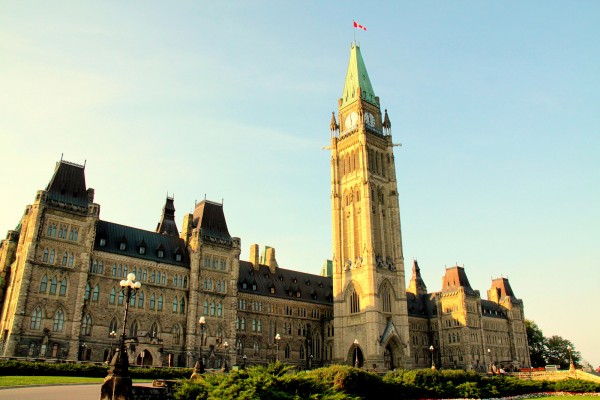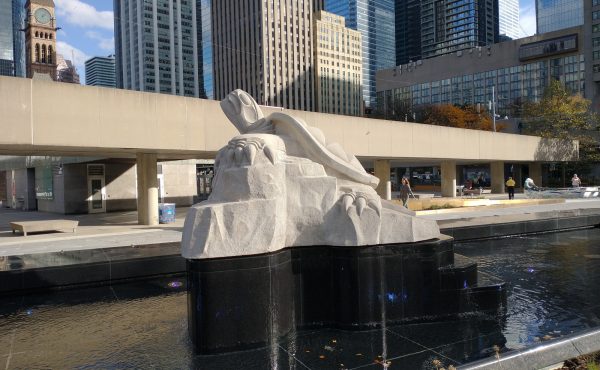
Richard Florida called last week for President Obama to create a national US department of cities. When the author of The Rise of the Creative Class and head of the Martin Prosperity Institute at the University of Toronto wrote that such a department would help build a “lasting urban legacy” in America, it created some buzz.
As much as the United States needs this, here’s the thing — Canada needs it even more. We should have a new national ministry of urban affairs, as we had in the 1970s. Or perhaps we’re ready to call it a ministry of cities.
In the US, there has been a federal role in cities since the Clinton years, and they already have a Department of Housing and Urban Development (HUD) — something Canada doesn’t have. Florida isn’t the first to suggest the Americans need something more comprehensive (cities are more than housing and development), and he may not be the last — but as President Obama’s second term starts, this may be the best chance the Americans have to make it a reality.
The UK essentially has such a department, and is going further, devolving key powers from Westminster to cities. Australia has a “Major Cities Unit,” that among other things produces an impressive State of Cities analysis. Both realize the competitive importance of city-regions.
Florida’s suggestion has actually been characterized as “lefty” in America – what it is though, is smart.
We’re unquestionably at the start of the first urban century, and the future of both America and Canada will be defined by its cities. Like the rest of the world, North America’s city-regions are the engines of our economies — no one can dispute that. But cities are also the source of innovation in everything from climate change, to new technologies and social progress. Whether you’re motivated by our economic success, our urban and national identity, our physical and social health, our environmental future, or all of the above and more, all depend on how well our cities perform.
Ottawa’s announcement that it will be funding cities in a larger way is a very positive move and important commitment. But in the past, such investments have focused on the wrong things — expensive, counter-productive infrastructure perpetuating car-dependency for example, rather than transit, walking and biking within multi-modal cities. To ensure these investments and many other needed initiatives are focused smartly, within a better understanding of what cities truly need, there should be strong and dedicated leadership behind it — such as a federal cabinet minister who really gets cities.
Canada used to be an international leader in urban thinking and creative mechanisms at the federal level. When it came to cities, Canada thought about “where the puck was going to be” as Wayne Gretzky used to put it. But as cities have gotten more important globally, our federal thinking hasn’t just taken its eye off the puck — we’ve lost sight of what game we’re playing.
A federal ministry of cities, or whatever we chose to call it, could strengthen our ability to address the big challenges in city-building — particularly around the necessary partnerships between all three levels of government (four if you count regional levels, and I do).
If positioned, led, and funded properly, a ministry of cities could be the place where a new national strategy on transportation, both within and between cities, could finally be born. A place where a true, visionary approach to national urban housing, long overdue, could be re-built. A place where everything from smart taxes, urban mobility and infrastructure deficits, to urban sprawl, better suburbs and inner-city transformations, could be better understood and debated.
I’ve been told I’m giving the federal government too much credit — could such a department really be a thought leader in our national city-building? I’ve heard fears of centralization and expansion at the very level of government that understands cities least. I share those fears.
I’ve also been frequently told “the current government doesn’t have an interest in cities, and that’s unlikely to change.”
But the truth is, the federal government already has centralized power over cities — in mechanisms that matter, and the money cities need. And whether any particular government or party agrees with the need, it’s critical for ALL parties to begin discussing better ways to position our cities, before future party platforms are established and elections are called.
The biggest reason the 1970s version of the Ministry of Urban Affairs failed was that it slipped into issues of provincial interest. To avoid repeating this error, the 2.0 version of a ministry of cities can’t be about centralization or the feds taking on more. It would have to be about better organization and focus of the federal role, and how Canada can help and support our cities better through mechanisms within its power.
Better partnerships, communication and respect, more predictable approaches, strategic use of federal powers such as taxing and funding, and policy leadership that’s about the big national picture, not stepping on the province’s toes. Impossible? Not for the right person.
This will be a tougher discussion here in Canada than in the US, because unlike America, our cities are “weak” both legally and financially. We don’t have the funding tools American cities have, our mayors have much weaker powers, and our cities are legally “creatures of the province” with no real status in Canadian law. Perhaps the ministry of cities will be a place where these two big weaknesses can be discussed. Despite them, our cities have managed to build themselves in a way that is often the envy of the world. Successful, livable, increasingly green, “cities that work.” Just imagine what we could do, if our cities were well positioned.
In the US, Florida’s suggestion might have been framed as lefty, but here in Canada we’re smart enough to know that this isn’t about left or right — it’s about success or failure.
So whether or not the US acts on Florida’s advice, lets have this much-needed discussion here in Canada. Lets get all federal parties and provinces talking about this, in a non-partisan way.
It’s the urban century, and our cities and city-regions face big challenges. They’re far too important to our country’s future to be under-considered by our country’s government.
photo by Wylie Poon
A condensed version of this article was originally published in the Globe and Mail
![]()
Brent Toderian is a national and international urbanism consultant with TODERIAN UrbanWORKS, the former Chief Planner for Vancouver, and the President of the Council for Canadian Urbanism. Follow him on Twitter @BrentToderian.





5 comments
I don’t think you’ve really made the case that any such federal ministry won’t end up interfering in provincial matters, and the fact that our big six cities are so enviably successful, suggests to me that you’re creating a solution for a problem that doesn’t exist. Suddenly we’d have highly paid people effectively getting their salary to invent problems we don’t currently have.
Clearly what we in Canada works as far as cities are concerned. Why not direct bureaucratic energy towards areas that actually are troubled like native issues?
R.
I think I agree with Richard. What is sounds like we need is better educated politicians in regards to urban needs. In that sense, we should be strengthening the Federation of Canadian Municipalities and the Canadian Institute of Planners so they may have more sway in federal decisions. Maybe this way we can avoid money being funneled into senseless infrastructure projects designed around the car and being termed economic stimulus.
What we need is to cut federal income tax, and institute municipal income taxes – while keeping the net tax burden about the same. Cities produce enough tax revenue to solve their own problems – however most of that revenue goes into federal coffers where it is wasted on prisons and fighter jets.
The Federal Ministry of Transport does not help urban transit agencies. There is a Federal Ministry of Agriculture and Agri-Food helps rural areas, but there should be a Federal Ministry of Urban Affairs.
Yeah, totally disagree. Each province needs to do a far better job with cities — Ontario certainly does — and every time someone creates some sort of bizarre out urging the federal government, which has nothing to do with cities, to do something to help them, it simply lets Ontario off the hook. Enough already. Our municipal government is the responsibility of Ontario. If there are problems to be addressed, Queen’s Park is the address. And if Queen’s Park starts going on about how Ottawa ought to do stuff, they’ve lost the plot — it’s our job to make sure they find it.